|
Books Should Be Free Loyal Books Free Public Domain Audiobooks & eBook Downloads |
|
|
Books Should Be Free Loyal Books Free Public Domain Audiobooks & eBook Downloads |
|
Humorous Books |
|---|
|
Book type:
Sort by:
View by:
|
By: W. S. Gilbert (d 1911) | |
|---|---|
 More Bab Ballads
More Bab Ballads
This is a subset of the first twelve poems from the second collection of Gilbert’s “Bab Ballads” – light verses poking fun at the life and people of his time in Gilbert’s unique “topsy-turvey” style. The epitaph on his memorial on the Victoria Embankment in London is “HIS FOE WAS FOLLY AND HIS WEAPON WIT”, an epitaph amply exemplified in these verses. | |
By: Mark Lemon (1809-1870) | |
|---|---|
 How to Make a Man of Consequence
How to Make a Man of Consequence
Mark Lemon had a natural talent for journalism and the stage, and, at twenty-six, retired from less congenial business to devote himself to the writing of plays. More than sixty of his melodramas, operettas and comedies were produced in London, whilst at the same time he was contributing to a wide variety of magazines and newspapers, and was founding editor of both Punch and The Field. | |
By: J. Thorne Smith, Jr. (1892-1934) | |
|---|---|
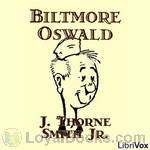 Biltmore Oswald
Biltmore Oswald
The hilarious diary of a young man's recruitment into, and service in a navy, which, though well equipped and disciplined, remains woefully ill prepared for his arrival and dubious contribution. (Introduction by Nigel Boydell) | |
By: Thomas Hood (1799-1845) | |
|---|---|
 Workhouse Clock
Workhouse Clock
There were scarcely any events in the life of Thomas Hood. One condition there was of too potent determining importance—life-long ill health; and one circumstance of moment—a commercial failure, and consequent expatriation. Beyond this, little presents itself for record in the outward facts of this upright and beneficial career, bright with genius and coruscating with wit, dark with the lengthening and deepening shadow of death. | |
By: F. Anstey (1856-1934) | |
|---|---|
 Bayard from Bengal
Bayard from Bengal
The estimable gentleman, Chunder Bindabun Bhosh, ESQ., B.A., travels from his native India to England, with his impeccable English and manners, which immediately mark him as a foreigner, and embarks on an enviable program of escapades. These stories are the product of the fertile imagination of Hurry Bungsho Jabberjee, B.A., a nom de plume for the humorist F. Anstey, which is a further nom de plume for Thomas Anstey Guthrie. Whether rescuing a nubile maiden from a charging bull or falling in love with said nubile maiden, Mr. Bosh, B. A. cannot help but perform with the requisite humor to engage our attention. | |
By: Heywood Broun (1888-1939) | |
|---|---|
 Seeing Things at Night
Seeing Things at Night
This Book is a collection of humorous short stories which describe the comedy in everyday things and situations. | |
 Pieces of Hate and other Enthusiasms
Pieces of Hate and other Enthusiasms
This book is a collection of humorous short stories about ordinary instances in daily life. We learn many interesting things about life, such as how to court women successfully, what it feels like to be a god, and why sometimes it would be a good idea to exchange one's own newborn baby for a better one at the hospital. | |
By: Knight Russ Ockside (1830-1898) | |
|---|---|
 History and Records of the Elephant Club
History and Records of the Elephant Club
Mortimer Q. Thomson (September 2, 1832 – June 25, 1875) was an American journalist and humorist who wrote under the pseudonym Q. K. Philander Doesticks. He was born in Riga, New York and grew up in Ann Arbor, Michigan. He attended Michigan University in Ann Arbor, but was expelled along with several others either for his involvement in secret societies[1] or for "too much enterprise in securing subjects for the dissecting room."[2] After a brief period working in theater, he became a journalist and lecturer... | |
By: Jesse Lynch Williams (1871-1929) | |
|---|---|
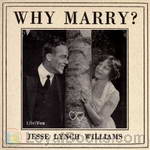 Why Marry?
Why Marry?
Why Marry? is a comedy, which "tells the truth about marriage". We find a family in the throes of proving the morality of marriage to a New Age Woman. Can the family defend marriage to this self-supporting girl? Will she be convinced that marriage is the ultimate sacredness of a relationship or will she hold to her perception that marriage is the basis of separating two lovers."Why Marry?" won the first Pulitzer Prize for Drama. | |
By: Steele Rudd (1868-1935) | |
|---|---|
 On Our Selection
On Our Selection
The humorous account of Dad and Dave and the rest of the Rudd clan as they attempt to carve a farming 'selection' out of the Australian wilderness in spite of fire, famine, snakebite, and a loony hired hand. | |
By: Susan Edmonstoune Ferrier | |
|---|---|
 Marriage, Volume 1
Marriage, Volume 1
“Love!–A word by superstition thought a God; by use turned to an humour; by self-will made a flattering madness.” – Alexander and Campaspe. Lady Juliana, the indulged and coddled seventeen (”And a half, papa”) year old daughter of the Earl of Cortland, is betrothed by her father to a wealthy old Duke who can give her every luxury. She instead runs away and marries her very handsome but penniless lover. Very soon, they are forced to travel to Scotland to live with his quirky family in a rundown “castle” in the barren wilderness. Can this marriage survive?(Summary by P.Cunningham) | |
By: John Wight (1866-1944) | |
|---|---|
 Mornings at Bow Street
Mornings at Bow Street
This is a collection of various articles found in Morning Herald columns. Some are found interesting, some may be hilarious! The 84 pieces of this book are actual reports throughout the 1870s newspaper written by the reporter, John Wight and Illustrated by George Cruikshank | |
By: Christopher Morley (1890-1957) | |
|---|---|
 In the Sweet Dry and Dry
In the Sweet Dry and Dry
Written just before Prohibition to entail the possible troubles that might happen en route. Both sides of the argument, or battle as the case may be, strike out with various over-top methods like legislating most fruits and vegetables as unsafe or intoxicating large groups with breathable alcohol. | |
By: Q. K. Philander Doesticks (1832-1875) | |
|---|---|
 The Witches of New York
The Witches of New York
A humorous account of visits to various fortune tellers, card readers, seers, and other "witches" of New York. Written by Q.K. Philander Doesticks (a.k.a.Mortimer Thomson). | |
By: Herbert George Jenkins (1876-1923) | |
|---|---|
 Mrs. Bindle
Mrs. Bindle
Herbert Jenkins' most popular fictional creation was Mr. Joseph Bindle, who first appeared in a humorous novel in 1916 and in a number of sequels. In the preface to the books, T. P. O'Connor said that "Bindle is the greatest Cockney that has come into being through the medium of literature since Dickens wrote Pickwick Papers". The stories are based on the comedic drama of life at work, at home and all the adventures that take place along the way. It becomes clear as the stories progress that Bindle would not be who he is without Mrs. Bindle, and this book seeks to tell the stories of the Bindles from the distaff point of view. | |
By: Kenneth McGaffrey (??-1938) | |
|---|---|
 The Sorrows of a Show Girl
The Sorrows of a Show Girl
Originally printed in The Morning Telegraph in New York, this is the story of Miss Sabrina, the show girl, and her ups and downs with the unpredictable theatrical industry and the Great White Way, the lights and glamour of Broadway. "In order to set myself right with both the public and the vast army of Sabrinas that add youth and beauty to our stage, and brilliancy and gaiety to our well known cafes, I wish to say that she is all that she should be...”- Kenneth McGaffrey | |
By: Various | |
|---|---|
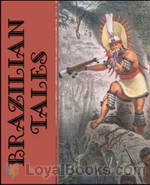 Brazilian Tales
Brazilian Tales
“Brazilian Tales” is a collection of six short stories selected by Isaac Goldberg as best representative of the Brazilian Literature of his period – the end of the 19th century. His comprehensive preface aims at familiarizing the reader with a literature that was – and still is – virtually unknown outside the boundaries of its own land, and the pieces chosen by Goldberg to be translated belong to writers that reached popularity and appreciation while still alive. This “pioneer volume”, as the translator himself puts it, still keeps its charm and interest as a way of offering to the English speaking public some “sample cases” of Brazilian Literature. | |
By: Anonymous | |
|---|---|
 English as She is Wrote
English as She is Wrote
"...Showing Curious ways in which the English Language may be made to convey Ideas or obscure them." A collection of unintentionally humorous uses of the English language. Sections of the work: How she is wrote by the Inaccurate, By Advertisers and on Sign-boards, For Epitaphs, By Correspondents, By the Effusive, How she can be oddly wrote, and By the Untutored. | |
By: Various | |
|---|---|
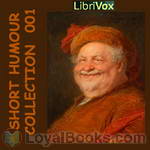 Short Humor Collection
Short Humor Collection
This is a collection of short humorous works first published before 1923. | |
By: Unknown | |
|---|---|
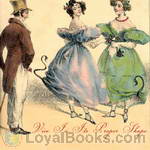 Vice in its Proper Shape
Vice in its Proper Shape
Cautionary tales of the transmigration of the souls of naughty boys and girls, as elucidated by the mysterious Bramin, Mr Wiseman: “Having been gifted with the faculty of distinguishing those animals which are now animated by the souls of such human beings as formerly degraded themselves to a level with the unthinking brutes, I have taken the pains to provide a collection of beasts, birds, &c. most of which are inhabited by the souls of some naughty masters or misses, who died in the neighbourhood.” (David Barnes, quoting the Introduction) | |
 Humour of the North
Humour of the North
Some day an enterprising editor may find time to glean from the whole field of Canadian literature a representative collection of wit and humour. . . . The present little collection obviously makes no such ambitious claim. It embraces, however, what are believed to be representative examples of the work of some of our better-known writers, many of which will no doubt be quite familiar to Canadian readers, but perhaps none the less welcome on that account. | |
By: Richmal Crompton (1890-1969) | |
|---|---|
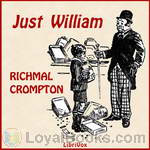 Just William
Just William
William is a mischievous eleven year old who is puzzled by the adult world, which is no less puzzled by him. The humor is gentle and pleasing. The series of books is better known in the United Kingdom than in the U.S. ( | |
By: Chester K. Steele (1862-1930) | |
|---|---|
 The Diamond Cross Mystery
The Diamond Cross Mystery
Colonel Ashley is confronted with a difficult case: The proprietor of a jewelry shop is found murdered, and a valuable diamond cross is stolen. Whodunnit, and how can the Colonel's expertise in fishing help to solve the case? | |
By: Owen Wister (1860-1938) | |
|---|---|
 The New Swiss Family Robinson
The New Swiss Family Robinson
A parody of its famous predecessor, this short piece was written by Owen Wister for the Harvard Lampoon | |
By: Anonymous | |
|---|---|
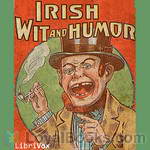 Irish Wit and Humor
Irish Wit and Humor
Excerpted anecdotes from the biographies of Swift, Curran, O'Leary and O'Connell, relating humorous snippets of politics in 18th and 19th century Ireland. For some these may be poignant in addition to being humorous and for others they may be humorous in addition to being poignant. ( | |
By: Carroll Watson Rankin (1864-1945) | |
|---|---|
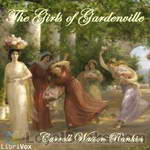 The Girls of Gardenville
The Girls of Gardenville
It is pleasant to have another book about a group of merry, natural girls, who have the attractions of innocence and youthful faults. "The Sweet Sixteen" Club made fudge, and went on picnics, and behaved just as jolly, nice maidens should. (The Outlook, vol. 82, Mar. 24, 1906) | |
By: Barry Pain (1864-1928) | |
|---|---|
 Eliza
Eliza
A gentle, yet deliciously humourous series of anecdotes following the life of the main character and his wife, Eliza. | |
By: Richard Marsh (1857-1915) | |
|---|---|
 Amusement Only
Amusement Only
This is a collection of 12 short stories of mystery and humor, which are, as the title says, for amusement only. | |
By: A. A. Milne (1882-1956) | |
|---|---|
 The Sunny Side
The Sunny Side
The Sunny Side is a collection of short stories and essays by A. A. Milne. Though Milne is best known for his classic children's books, especially Winnie The Pooh, he also wrote extensively for adults, most notably in Punch, to which he was a contributor and later Assistant Editor. The Sunny Side collects his columns for Punch, which include poems, essays and short stories, from 1912 to 1920. Wry, often satirical and always amusingly written, these pieces poke fun at topics from writing plays to lying about birdwatching. They vary greatly in length so there is something for everyone. | |
By: Arnold Bennett (1867-1931) | |
|---|---|
 Self and Self-management: Essays about Existing
Self and Self-management: Essays about Existing
Bennett's essays always provide food for thought and bring a wry smile to the lips. Human nature, it appears, changes little over the ages, and Bennett's writing stands the test of time, though in the case of some of the essays in this eclectic collection, it is well to remember that they were written at the time of the First World War and the fight for women's suffrage. | |
By: Ellis Parker Butler (1869-1937) | |
|---|---|
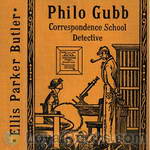 Philo Gubb, Correspondence-School Detective
Philo Gubb, Correspondence-School Detective
Philo Gubb, not being content with his job as wallpaper-hanger, has higher aspirations: to become a detective, just like Sherlock Holmes. To that end, he enrolls in a correspondence course, where he gets lessons through the mail as well as the necessary disguises for a detective. Philo Gubb, not being really clever or intuitive, or even looking good in those disguises, gets involved in one case after the other - and sooner or later happens to stumble on and solve the crime... Each of these stories... | |
By: Saki (1870-1916) | |
|---|---|
 The Toys of Peace
The Toys of Peace
This is the fifth collection of short stories by Saki (H.H. Munro), and was published posthumously in 1923. Even so, many of the stories are quite up to the standard of those collected earlier. | |
By: Richard Harding Davis (1864-1916) | |
|---|---|
 The Make-Believe Man
The Make-Believe Man
Adventure was what our protagonist was looking for, when he boarded the steamer "Patience" for his holiday, and when one has a man with such a vivid imagination like Joseph Forbes Kinney as a travel companion, who seems to find adventures at every turn of the road (and if not, he manufactures them), the two travellers are sure to stumble into trouble... | |
By: G. K. Chesterton (1874-1936) | |
|---|---|
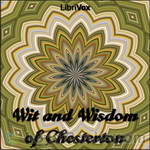 Wit and Wisdom of Chesterton
Wit and Wisdom of Chesterton
In this collection, Bevis Hillier has put together some of Chesterton's essays in "The Defandant", "Varied Types" and "Tremendous Trifles". These 12 pieces were chosen to giving a peek into the margins of Chesterton's work and give a sense of the distinctive flavor of his mind. They were also chosen with an eye to showing what a complex and fascinating character he was. | |
By: Thomas Hardy (1840-1928) | |
|---|---|
 The Hand of Ethelberta
The Hand of Ethelberta
Ethelberta was raised in humble circumstances but became a governess and consequently, at the age of 18, married well. However, her husband died two weeks after the wedding. Her father-in-law, Lord Petherwin, died shortly afterwards. Ethelberta (now 21) lives with her mother-in-law, Lady Petherwin. In the three years that have elapsed since her marriage, Ethelberta has been treated to foreign travel and further privileges by Lady Petherwin but restricted from seeing her own family. The story follows Ethelberta's career as a famous poetess and storyteller... | |
By: Joel Chandler Harris (1845-1908) | |
|---|---|
 Uncle Remus Returns
Uncle Remus Returns
Uncle Remus tells these 11 stories but to the son of the original "little boy" who is visiting his grandmother on the plantation. As always Uncle Remus can be relied upon to provide funny and pointed insight into human personalities through his story telling. These were all published in the Uncle Remus magazine from 1905 and 1906 and gathered together in this book by the author. Note that these stories are reflections of another period in time and some of the language used would definitely be considered rude and/or offensive now. In keeping with the desire to present the text as the author wrote it, nothing has been changed or edited. | |
By: A. A. Milne (1882-1956) | |
|---|---|
 Once a Week
Once a Week
A collection of short stories by famed Winnie the Pooh author, A.A. Milne. This charmingly humorous work from Milne's earlier writing period was first published in Punch magazine. | |
By: Arnold Bennett (1867-1931) | |
|---|---|
 The Feast of St. Friend
The Feast of St. Friend
In The Feast of St. Friend, a Christmas book, Arnold Bennett shares his views on Christmas as the season of goodwill. As always, Bennett's writing includes some thought-provoking ideas liberally spiced with his wry sense of humour, and as always too, you can barely believe it was written so long ago. This was published exactly 100 years ago, in 1911. (Introduction by Ruth Golding) | |
By: Dorothy Canfield Fisher (1879-1958) | |
|---|---|
 The Bent Twig
The Bent Twig
Semi-autobiographical series of incidents in the life of an intellectual American family in the late 19th - early 20th Century as seen by favored daughter, Sylvia Marshall. Her father is an economics professor in a Midwestern state university and she is following in his inquisitive footsteps. Canfield writes this in a matter-of-fact manner with Tarkingtonesque good humor. | |
By: Cal Stewart (1856-1919) | |
|---|---|
 Uncle Josh's Punkin Centre Stories
Uncle Josh's Punkin Centre Stories
A collection of comedic short stories from the perspective of an old country man. | |
By: A. A. Milne (1882-1956) | |
|---|---|
 Not That It Matters
Not That It Matters
More of the witty, wry, and deliciously wicked essays and articles written by Milne. Most people know him as the creator of Winnie The Pooh, but he worked for many years as editor of Punch Magazine and these are some of his best. Not That It Matters is a collection of over 40 of these short stories and articles. Not That It Matters collects his columns for Punch, which include poems, essays and short stories, from 1912 to 1920. Most of his writing pokes fun, both gentle and not so gentle at a variety of topics... | |
By: George Horace Lorimer (1869-1937) | |
|---|---|
 Letters from a Self-Made Merchant to His Son
Letters from a Self-Made Merchant to His Son
Being the Letters written by John Graham, Head of the House of Graham & Company, Pork-Packers in Chicago, familiarly known on 'Change as "Old Gorgon Graham," to his Son, Pierrepont, facetiously known to his intimates as "Piggy." George Horace Lorimer was an American journalist and author. He is best known as the editor of The Saturday Evening Post. | |
By: Christopher Morley (1890-1957) | |
|---|---|
 Kathleen
Kathleen
A group called the Scorpions, eight Oxford undergraduates, find a letter Kathleen wrote a letter to Joe at Oxford. They build up an image of Kathleen and Joe from the letter and set out to find and meet Kathleen. The competition between them leads to many entertainingly funny scenarios. | |
By: Stephen Leacock (1869-1944) | |
|---|---|
 My Discovery of England
My Discovery of England
"In the course of time a very considerable public feeling was aroused in the United States and Canada over this state of affairs. The lack of reciprocity in it seemed unfair. It was felt (or at least I felt) that the time had come when some one ought to go over and take some impressions off England. The choice of such a person (my choice) fell upon myself. By an arrangement with the Geographical Society of America, acting in conjunction with the Royal Geographical Society of England (to both of whom I communicated my proposal), I went at my own expense."And from thence follow the impressions of Canadian political economist and humourist, Stephen Leacock, after a lecturing visit to England. | |
By: Agnes Repplier (1855-1950) | |
|---|---|
 In Our Convent Days
In Our Convent Days
With her usual wit and charm, Ms. Repplier recalls her days at Eden Hall, the Convent of the Sacred Heart in Torresdale, north of Philadelphia. She shares the highlights (and some of the low lights) of her time there. Perhaps this sharp eye, nurtured by her willfulness and independent spirit, was the reason she was not invited to return to Eden after her second year. Not only Catholics or boarding school alumnae will find this book entertaining; anyone who went to school or who looks back on their childhood will see their own experience somewhere in this memoir. | |
By: Imogen Clark | |
|---|---|
 Rhymed Receipts for Any Occasion
Rhymed Receipts for Any Occasion
In addition to being amusing, recipes written in a poetic form were easy to remember and used as learning tools for the young housekeeper. Many of the poems in this 1912 publication were originally published in Woman's Home Companion, Good Housekeeping Magazine, the Housewife, Table Talk, and the Boston Cooking School Magazine. | |
By: James Thomson (1834-1882) | |
|---|---|
 Satires and Profanities
Satires and Profanities
"Believing as I do that James Thomson is, since Shelley, the most brilliant genius who has wielded a pen in the service of Freethought, I take a natural pride and pleasure in rescuing the following articles from burial in the great mausoleum of the periodical press. There will doubtless be a diversity of opinion as to their value. One critic, for instance, has called “The Story of a Famous Old Jewish Firm” a witless squib; but, on the other hand, the late Professor Clifford considered it a piece of exquisite mordant satire worthy of Swift... | |
By: Washington Irving (1783-1859) | |
|---|---|
 Letters of Jonathan Oldstyle, Gent.
Letters of Jonathan Oldstyle, Gent.
The Letters of Jonathan Oldstyle, Gent. (1824) is a compilation of eight humorous and observational letters written by American writer, Washington Irving, under the pseudonym, Jonathan Oldstyle. These eight letters and one additional were first published as a series of "Letters to the Editor" of the New York paper, The Morning Chronicle, between 1802 and 1803. In them Oldstyle skewered the local New York social scene on the topics of etiquette, marriage, fashion, and other particulars of human interaction... | |
By: Saki (1870-1916) | |
|---|---|
 Unbearable Bassington
Unbearable Bassington
The Unbearable Bassington was the first novel written by Saki (H. H. Munro). It also contains much of the elegant wit found in his short stories. Comus (The Unbearable) Bassington, is a charming young man about town. His perversity however thwarts all his mother’s efforts to advance his prospects and lands him in hot water. Like many a “black sheep” he ends up being sent off to one of the colonies to fend for himself. This book showcases Saki’s wonderful writing and that ability to be so very funny and terribly sad at the same time. | |
By: Anonymous | |
|---|---|
 Jokes For All Occasions
Jokes For All Occasions
JOKES FOR ALL OCCASIONSPREFACEThe ways of telling a story are as many as the tellers themselves. It is impossible to lay down precise rules by which any one may perfect himself in the art, but it is possible to offer suggestions by which to guide practise in narration toward a gratifying success. Broadly distinguished, there are two methods of telling a story. One uses the extreme of brevity, and makes its chief reliance on the point. The other devotes itself in great part to preliminary elaboration in the narrative, making this as amusing as possible, so that the point itself serves to cap a climax... | |
By: George Calderon (1868-1915) | |
|---|---|
 Cinderella
Cinderella
If you are expecting glass slippers and pumpkin coaches, look elsewhere... This is "a pantomime as Ibsen would have written it, if only it had occurred to him to write one." Set on a "bleak and cheerless heath overlooking the fjord" we meet Ibsenesque heroine Mrs. Inquest, her step-daughter Hilda, and her daughter Hedda, who is engaged to be married to the unfortunate Tesman. Thus begins Calderon's hilarious Ibsenesque version of Cinderella. NOTE from the editor of the volume, published in 1922 after Calderon's death: This play is hardly more than a rough draft, written when the idea was fresh and put aside to be worked on when the right moment should come... | |
By: Robert Jones Burdette (1844-1914) | |
|---|---|
 Chimes From A Jester’s Bells
Chimes From A Jester’s Bells
Part I. The Story of Rollo; Mr. Holliday knows all there is to know about raising children, or at least he thinks he does. His attempts to train his son, Rollo, "in the way he should go," are well-meant, but hilariously unsuccessful--or are they? I believe this is a sort of spoof of the “Rollo” series for children, that was written by Jacob Abbot in the mid 19th century. The characters have the same names and the chapters have a little Q&A at the end like the Abbot books, except these are definitely tongue-in-cheek... | |
By: Allan Monkhouse (1858-1936) | |
|---|---|
 Mary Broome
Mary Broome
Before Downton Abbey, there was Mary Broome. In Allan Monkhouse's 1911 satire, when the son of a middle-class household gets their housemaid pregnant, the two families must try to combine their very different values. | |
By: Emily Eden (1797-1869) | |
|---|---|
 Semi-Attached Couple
Semi-Attached Couple
Young and beautiful Helen Eskdale and fabulously wealthy Lord Teviot seem to be the perfect match. But when they marry, they find that misunderstandings and jealousies continually drive them apart. The machinations and intrigues of a large supporting cast surround the central question of whether their marriage will survive. Emily Eden's comedy of manners is reminiscient of Jane Austen's witty and ironic novels. | |
By: Arthur W. Marchmont (1852-1923) | |
|---|---|
 Dash for a Throne
Dash for a Throne
The young Count von Rudloff got himself into so much trouble with the Imperial Family in Berlin, that he sees no other way out of it than to fake his own death. Stumbling through different identities, he finally assumes - quite against his will - the identity of the Prince von Gramberg. At Gramberg Castle, he finds a web of intrigue, which threatens the safety of the young and beautiful Countess Minna. The Count von Rudloff decides to save the girl, but the intrigue is more complicated than it first appeared, and there are old enemies who are still waiting for their revenge... | |
By: St. John Emile Clavering Hankin (1869-1909) | |
|---|---|
 Mr. Punch's Dramatic Sequels
Mr. Punch's Dramatic Sequels
A collection of short and humorous one-act "sequels" to 14 major plays (many already in the catalog). Plays end too soon. They never show the whole of what I want to know. The curtain falls and I'm perplexed with doubts about what happened next. Did HAMLET'S father haunt no more the battlements of Elsinore? Does LADY TEAZLE never call at LADY SNEERWELL'S now at all? Was BENEDICK'S a happy marriage? And will the MELNOTTES keep a carriage? Will AUBREY take to wife one day another MRS. TANQUERAY? Do ECCLES and his stepson wrangle? Has anything been heard of DANGLE? What has become of MRS... | |
By: C. J. Dennis (1876-1938) | |
|---|---|
 Ruined Reversolet
Ruined Reversolet
LibriVox volunteers bring you 16 recordings of A Ruined Reversolet by C. J. Dennis. This was the Weekly Poetry project for October 28, 2012.Clarence James Dennis was an Australian poet and journalist. In his varied career, he worked as a barman, shearer, solicitor's clerk, newspaper proprietor and (as do many Australians) a civil servant, before settling down in a rural retreat at Toolangi, in the Dandenong Ranges, east of Melbourne.His most famous work is "The Songs of a Sentimental Bloke", a verse novel written in an Australian vernacular and first published in 1915... | |
By: Mark Twain (1835-1910) | |
|---|---|
 Mark Twain’s Journal Writings, Volume 2
Mark Twain’s Journal Writings, Volume 2
This second collection of essays by Mark Twain is a good example of the diversity of subject matter about which he wrote. As with the essays in Volume 1, many first appeared alone, in magazines or newspapers, before being printed as chapters of his larger works, while others were taken from larger works and reprinted in collections of essays. On top of being prolific, Mark Twain was a very successful marketer of his works. Volume 2 contains the following works: 1.) "A Curious Experience" - 1892 2... | |
By: Cuey-na-Gael (1858-1937) | |
|---|---|
 Irishman's difficulties with the Dutch language
Irishman's difficulties with the Dutch language
Jack O'Neill, an Irishman, has just returned from a month's holiday in The Netherlands. Before he left, he had boasted to his friends that he would learn the Dutch language within a fortnight. On his return, he has to admit that it wasn't quite that easy... He tells his friends stories about his clumsy attempts to speak Dutch, leading to many funny scenes.This audiobook contains both "An Irishman's difficulties with the Dutch language" and its sequel "Jack O'Neill's further adventures in Holland"... | |
By: Mark Twain (1835-1910) | |
|---|---|
 Mark Twain’s Journal Writings, Volume 3
Mark Twain’s Journal Writings, Volume 3
This third volume of Mark Twain's journal writings continues on eclectic and varied path established by the first two volumes. Included in this collection are works that appeared by themselves in magazines during Twain's lifetime, as well as essays taken by editors and Twain himself from Twain's larger works, and re-published in collections of his stories. This volume includes the following works: "Buying Gloves in Gibraltar", "The great revolution in Pitcairn", "A Gift from India" [including editor's... | |
By: Robert Pitcher Woodward (1866-) | |
|---|---|
 On A Donkey's Hurricane Deck
On A Donkey's Hurricane Deck
" A Tempestous Voyage of Four Thousand and Ninety-Six Miles Across the American Continent on a Burro, in 340 Days and 2 Hours - starting without a dollar and earning my way." The journey could be accomplished in 5 days by train, but the author took close to a year to work his way across the country. This is a witty and amusing account of one man (and his donkey)'s adventures crossing the American continent from New York to San Francisco. | |
By: Robert C. Benchley (1889-1945) | |
|---|---|
 Of All Things
Of All Things
A collection of amusing essays satirizing serious consideration of topics including natural history, social etiquette, or indeed, civilized behavior (especially of the upper classes). | |
By: George Fullerton Evans (-1963) | |
|---|---|
 College Freshman's Don't Book
College Freshman's Don't Book
A short, humorous guide of what not to do in your first year of college. | |
By: Harriet Lummis Smith | |
|---|---|
 Peggy Raymond's Way (or Blossom Time At Friendly Terrace)
Peggy Raymond's Way (or Blossom Time At Friendly Terrace)
In this fifth and (as far as is known) final volume of Peggy Raymond and her Friendly Terrace entourage, we find the Girls winding down from the Great War, and pursuing more domestic and mischievous pursuits. Finishing up college and preparing for Peggy and Grahame's wedding, Ruth, Amy and Priscilla look toward their own opportunities of future relationships and potential marriages. As Harriet Lummis Smith is so good at, it is a neat blend of continuity toward the known characters and charming introductions of the new. | |
By: Lawton Mackall (1888-1968) | |
|---|---|
 Bizarre
Bizarre
A series of essays offering a humorous look at commonplace items and occurrences. | |
By: Rupert Hughes (1872-1956) | |
|---|---|
 Excuse Me! (Dramatic Reading)
Excuse Me! (Dramatic Reading)
What happens when a mix of lovers get stuck together on a coast-to-coast train? Mainly hilarity. There is every kind of couple imaginable. One serviceman and his bride-to-be are trying desperately to get married but can't find a clergyman to perform the rites. They don't know that right in their midst is a preacher disguised as a man of the world so he and his wife can enjoy a carefree vacation. Then there is a drunk mourning his separation from the wife who just happens to be on the same train. There is even a confirmed bachelor who discovers that a confirmed spinster is his long-lost love from years ago... | |
By: John Rae (1882-1963) | |
|---|---|
 New Adventures of Alice (version 2 Dramatic Reading)
New Adventures of Alice (version 2 Dramatic Reading)
After reading and re-reading the book many time as a boy and wishing that Lewis Carroll would have written another Alice In Wonderland Book, John Rae began imagining what that girl would have gotten up to if he had done so. Telling these stories to his children over the years, where they were enthusiastically received, he finally decided to share them with the world. And here they are! The New Adventures of Alice | |
By: Earl Derr Biggers (1884-1933) | |
|---|---|
 Love Insurance
Love Insurance
A young man came to Lloyds of London. He knew they took out policies on unusual risks... And what he wanted was love insurance. What follows is a comic novel, by the creator of the Chinese detective - Charlie Chan! | |
By: Frederic Stewart Isham (1866-1922) | |
|---|---|
 Nothing But the Truth
Nothing But the Truth
A young man, finding himself unexpectedly impecunious, attempts to improve his fortunes by wagering that he can speak nothing but the absolute truth for three weeks. He soon learns, however, that telling only the unvarnished truth can have surprising consequences. This 1914 novel of love, mystery, and misunderstandings, with amusing characters and plot twists, was adapted as a Broadway play in 1916, followed by six motion pictures: in 1920 and 1929; in 1931 separately in Spanish, French and German; and in 1941 starring Bob Hope and Paulette Goddard. Frederic S. Isham was a writer of short stories, novels and plays. (Lee Smalley) | |
By: Ellis Parker Butler (1869-1937) | |
|---|---|
 That Pup
That Pup
A puppy, unanounced and unordered, arrives in a crate at Mr. Murchison's house. Humorous events follow. | |
By: Israel Zangwill (1864-1926) | |
|---|---|
 Grotesques and Fantasies
Grotesques and Fantasies
A set of often funny, sometimes tragic stories by Israel Zangwill. Most famous for his scathingly accurate portrayals of the Jewish ghetto, these stories have a wider stage, poking fun at social conventions and society itself, both high and low. The real and the fantastic collide to produce a world uniquely Zangwill's.These are the tales of figures as diverse as a pantomime dragon, an excellent butler, a man living his life in the wrong order and a Jewish maiden who knows exactly what she is worth... | |
By: Ellis Parker Butler (1869-1937) | |
|---|---|
 Adventures of a Suburbanite
Adventures of a Suburbanite
Why is the neighbor so obsessed with his car? Where can we find a good gardener? Should we have a Santa Claus at our Christmas party? Yes, this is suburbia... much the same today as it was in 1911. | |
By: Henry james (1843-1916) | |
|---|---|
 Third Person
Third Person
The Third Person is an amusing spoof on spooking. The 'ghostly man about the house' in whom two increasingly competitive maiden ladies come to take a proprietary interest is as unlikely to inspire terror as the wraith in one of James's earliest tales. The anticlimactic crisis may need a footnote for younger readers: a Tauchnitz was an unauthorized continental paperback edition of a british or american book which, purely for copyright reasons, was not supposed to be brought back to England. To think of this as smuggling certainly placed, for James's contemporaries, the crimes of the ghostly third person in a hilarious perspective. | |
By: Edith Nesbit (1858-1924) | |
|---|---|
 Lark
Lark
"The Lark" has all the charm and freshness which have made Miss Nesbit's former novels so justly popular, and yet the story ts entirely new and original. Two girls, Jane and Lucilla, are led by Jane's guardian to entertain high hopes. The fortune, however, which Jane was to have inherited, has been lost by unlucky speculations, and the two girls have to set about earning their own livings. They experience many adventures and ups and downs of fortune before they meet with the two men who ensure their happiness and prosperity. A delightful story, well worth reading. | |
By: F. Anstey (1856-1934) | |
|---|---|
 Voces Populi
Voces Populi
F. Anstey was the nom de plume of Thomas Anstey Guthrie, a Londoner who was trained for the bar but found success as a writer of humorous pieces for Punch and humorous novels. Voces Populi, a collection of his Punch pieces, is considered to be among his best works. He treats an array of situations from the charlatan conjuror to a row over a lady's large, obstructive hat at the music hall. | |
By: Edgar Saltus (1855-1921) | |
|---|---|
 Mr. Incoul's Misadventure
Mr. Incoul's Misadventure
Saltus has been compared to Oscar Wilde for wit and language. His novels are entertaining, yet philosophical, exposing the vagaries of human nature. The publishers promoted Mr. Incoul's Misadventure thus: "A novel which is sure to be condemned by every one who prefers platitude to paradox, or tea and toast to truffles and red pepper." | |
By: F. Anstey (1856-1934) | |
|---|---|
 Mr. Punch's Model Music-hall Songs & Dramas
Mr. Punch's Model Music-hall Songs & Dramas
F. Anstey was the nom de plume of Thomas Anstey Guthrie, a Londoner who was trained for the bar but found success as a writer of humorous pieces for Punch and humorous novels. Mr. Punch's Model Music Hall is a collection of humorous pieces written for Punch, divided into songs and dramas. In his usual fashion, Mr. Anstey captured the tone of his times and then exaggerated whatever was already absurd to entertain and give pointed commentary at the same time. | |
By: Edmund Spenser (1552-1599) | |
|---|---|
 Brittains Ida or Venus and Anchises
Brittains Ida or Venus and Anchises
While hunting, the boy Anchises stumbles upon Venus's forest retreat and is so kindly entertained by the goddess that he becomes the proud father of Aeneas, the hero of Vergil's Aeneid. The poem is an epyllion like Marlowe's "Hero and Leander" and Shakespeare's "Venus and Adonis," a short erotic poem with a mythological subject. The style is Spenserian, the stanzas rhyming ababbccc. When Brittain's Ida was published in 1628, the publisher ascribed it to Edmund Spenser. However, in 1926 Ethel Seaton discovered and published Fletcher's original manuscript, whose opening stanzas make clear that this is the work of Fletcher, who entitled it "Venus and Anchises." | |
By: Mikhail Saltykov-Shchedrin (1826-1889) | |
|---|---|
 Family of Noblemen
Family of Noblemen
Meet the Golovliovs, the ultimate dysfunctional family. In the difficult transition years before and after the liberation of Russia’s serfs, the Golovliovs are a gentry family ill-equipped to face the adaptations necessary in the new social order. Petty, back-biting, greedy, rigid, ignorant, and cruel, their personalities are captured in the array of nicknames they themselves give each other: The Hag, Little Judas, Simple Simon, Pavel the Sneak, the Orphans, the Blood-Sucker. They hate each other ferociously and utterly despise the peasants around them, who are gradually awakening to the potentialities of their new freedoms... | |
By: Henry Murger (1832-1861) | |
|---|---|
 Bohemians of the Latin Quarter
Bohemians of the Latin Quarter
As much as any other work of literature, Henri Murger’s 1851 collection of witty sketches Scènes de la vie de bohème shaped the later romanticized image of the bohemian artist: independent, insouciant, exuberantly lustful, devoted to Art for Art’s sake no matter how cold and hungry the artist might be. Four young Parisian artists, Schaunard the composer, Marcel the painter, Rodolphe the poet, and Colline the philosopher, form an informal Bohemian alliance dedicated to Art and the joy of Life... | |
By: Louis Napoleon Parker (1852-1944) | |
|---|---|
 Pomander Walk
Pomander Walk
Pomander Walk is a unique street in London, and in this humorous novel we meet the unusual residents. It was originally produced as a stage play and includes lively dialog. | |
By: S. Baring-Gould (1834-1924) | |
|---|---|
 Pennycomequicks
Pennycomequicks
The Pennycomequicks is the charming and witty story of a dysfunctional English family in the late 19th century, scattered to the winds, scarred and battered by human and Divine tragedy, struggling for sustenance of the material and / or immaterial kind. | |
By: George Livermore | |
|---|---|
 Take it From Dad
Take it From Dad
Take It From Dad is a collection of letters written by a father to his son, Ted, at boarding school, away from home for the first time. In each letter "Dad" comments on some aspect of Ted's experience, attitude, or behavior, illustrating and driving home his point with an entertaining tale about human nature. This book is appropriate for all ages from adolescence on, and its lessons are as relevant today as when they were written. --Lee Smalley | |
By: William Combe (1742-1823) | |
|---|---|
 Tour of Dr. Syntax in Search of the Picturesque
Tour of Dr. Syntax in Search of the Picturesque
“To bury these, to christen those, And marry such fond folks who chose To change the tenor of their life And risk the matrimonial strife.” This was the humdrum life of Dr. Syntax before he set out on his bizarre and hilarious adventures, presented here in the form of satirical poem in 26 cantos. It’s a lot of fun! | |
By: Mark Twain (1835-1910) | |
|---|---|
 More Newspaper Articles by Mark Twain
More Newspaper Articles by Mark Twain
"More Newspaper Articles by Mark Twain" fills in the gaps left by the first collection of newspaper articles: "Newspaper Articles by Mark Twain" . The missing articles, collected by twainquotes.com, consist of works printed in the Muscatine Journal, the Keokuk Daily Post, the New York Sunday Mercury, the Golden Era, the Californian, The Daily Dramatic Chronicle, San Francisco Bulletin, the New York Herald and travel letters originally printed in the Chicago Daily tribune. The earliest articles first appeared in 1853... | |
By: Various | |
|---|---|
 Little Masterpieces of American Wit and Humor Vol 2
Little Masterpieces of American Wit and Humor Vol 2
Volume 2 of a ten volume collection of amusing tales, observations and anecdotes by America's greatest wordsmiths. This work includes selections by such household favorites as Ambrose Bierce, Oliver Wendell Holmes, Mark Twain and Bret Harte. | |
By: Henry Edward Warner (1876-) | |
|---|---|
 That House I Bought; A Little Leaf From Life
That House I Bought; A Little Leaf From Life
This is a whimsical, entertaining, tongue in cheek narrative of the author’s purchase of a house, circa 1911. | |
By: Margaret O. Oliphant (1828-1897) | |
|---|---|
 Miss Marjoribanks
Miss Marjoribanks
One of the so-called "Chronicles of Carlingford", of which there were two short stories and five novels written from 1861 to 1876 by Margaret Oliphant Wilson Oliphant. The Chronicles originally appeared in the famous Blackwood's Magazine. Mrs. Oliphant wrote prolifically in her career, and many of her main characters were independent, resourceful women. In fact, Miss Marjoribanks has been occasionally cited as the successor to Jane Austen's Emma, albeit Miss Marjoribanks is more focused, less pliable and a decidedly more strategic thinker than dear Emma. | |
By: Stephen Leacock (1869-1944) | |
|---|---|
 Essays and Literary Studies
Essays and Literary Studies
A collection of wry looks at literature, education, and other social phenomena by Canadian humourist and economics professor, Stephen Leacock. | |
By: Elizabeth Gaskell (1810-1865) | |
|---|---|
 Cranford (version 2)
Cranford (version 2)
Cranford is set in a small market town populated largely by a number of respectable ladies. It tells of their secrets and foibles, their gossip and their romances as they face the challenges of dealing with new inhabitants to their society and innovations to their settled existence. It was first published between 1851 and 1853 as episodes in Charles Dickens’ Journal Household Words. Appended to this recording is a short sequel, The Cage at Cranford, written ten years later and published in the journal All the Year Round... | |
By: Mark Twain (1835-1910) | |
|---|---|
 Mark Twain's Journal Writings, Volume 1
Mark Twain's Journal Writings, Volume 1
Volume 1 contains these 12 essays: 1.) "Americans on a Visit to the Emperor of Russia." 2.) "The Austrian Edison keeping school again" 3.) "The Canvasser's tale." 4.) "The Czar's Soliloquy." 5.) "English as She is Taught." 6.) "Grasses in the South." 7.) "Hawaii." 8.) "A Helpless Situation." 9.) "How I Escaped being Killed in a Duel." 10.) "Important to Whom it may Concern." 11.) "The Austrian Edison Keeping School Again" 12.) "Jim's Investments, and King Sollermun." | |
By: Various | |
|---|---|
 Tim Bobbin: A View of the Lancashire Dialect
Tim Bobbin: A View of the Lancashire Dialect
A comic dialogue written in John Collier's idiosyncratic version of the 18th century South Lancashire dialect together with a collection of 19th century texts on Collier and his work. Egged on by Meary (Mary), Tummus (Thomas) recounts the series of misadventures that ensue when he makes a trip to Rochdale on an errand for his master. First published in 1746, the text grew over subsequent editions as Collier expanded the story, added a preface in which he berates publishers who had pirated his work, and inflated and amended his glossary... | |
By: Omar Khayyám (1048-1131) | |
|---|---|
 Rubáiyát of Omar Khayyám (Le Gallienne) - Version 2
Rubáiyát of Omar Khayyám (Le Gallienne) - Version 2
One of the greatest works of poetry in history, this lyric poem presents the deep feelings and emotions of the poet on subjects such as life, death, love, God and destiny. | |
By: George Wilbur Peck (1840-1916) | |
|---|---|
 Sunbeams
Sunbeams
George W. Peck was at times a writer, newspaper publisher and politician. Many of the Sunbeam essays had been published in Peck's paper, "The Sun", as amusing and often critical comments on social and political subjects, typically current in the beginning of the 1900's. Topics are often 'small town' United States, and Peck's gentle sarcasm or portrayals much resembles that of Twain. Listeners must be aware that the Spanish American War was a recent event, leading to the "Yankee" involvement in the Philippines... | |
By: P. G. Wodehouse (1881-1975) | |
|---|---|
 Wodehouse in the Strand - Short Story Collection
Wodehouse in the Strand - Short Story Collection
This is a collection of P.G. Wodehouse's short stories published in The Strand from 1918 to 1922. (kirk202) Sir Pelham Grenville Wodehouse, KBE (15 October 1881 – 14 February 1975) was an English humorist, whose body of work includes novels, short stories, plays, poems, song lyrics and numerous pieces of journalism. He enjoyed enormous popular success during a career that lasted more than seventy years, and his many writings continue to be widely read. | |
By: Ellis Parker Butler (1869-1937) | |
|---|---|
 Ellis Parker Butler Short Story Collection, Vol 1
Ellis Parker Butler Short Story Collection, Vol 1
Ellis Parker Butler was an American author. He was the author of more than 30 books and more than 2,000 stories and essays. These are eight of his humorous short stories about life. | |
By: Bill Nye (1850-1896) | |
|---|---|
 Guest at the Ludlow and Other Stories
Guest at the Ludlow and Other Stories
Bill Nye was a respected journalist who also became known as a humorist. His short pieces range from a description of a visit to a friend residing in Ludlow prison, to “advice” to a son, to a wry commentary on his visits to Oakland, California. From real estate “investments” to accounts of less than ideal train passengers, Mr. Nye had his eye trained on the ironies of life, addressing them in the only sure way to preserve sanity, with humor. | |
By: Oliver Onions (1873-1961) | |
|---|---|
 Compleat Bachelor
Compleat Bachelor
George Oliver Onions (1873 – 1961) was a British writer of story collections and over 40 novels…. Onions wrote detective fiction, social comedy, historical fiction and romance novels. This social comedy of late Victorian England is among his first published materials. Rollo Butterfield, the compleat bachelor, looks upon his family and friends with an affectionate, gently humorous eye. | |
By: Lawton Mackall (1888-1968) | |
|---|---|
 Bizarre (version 2)
Bizarre (version 2)
A series of humorous musings, short-length jokes, often concerning words and manners. | |
By: Ellis Parker Butler (1869-1937) | |
|---|---|
 Perkins of Portland
Perkins of Portland
Amusing tales showing the effectiveness of advertising some rather questionable products. Perkins and the narrator partner in promotions directed at a gullible and willing public. Unlike most tales of the kind, with moralistic endings where the 'sharps' come to grief, Perkins and Co. become wealthy and quite pleased with themselves. | |